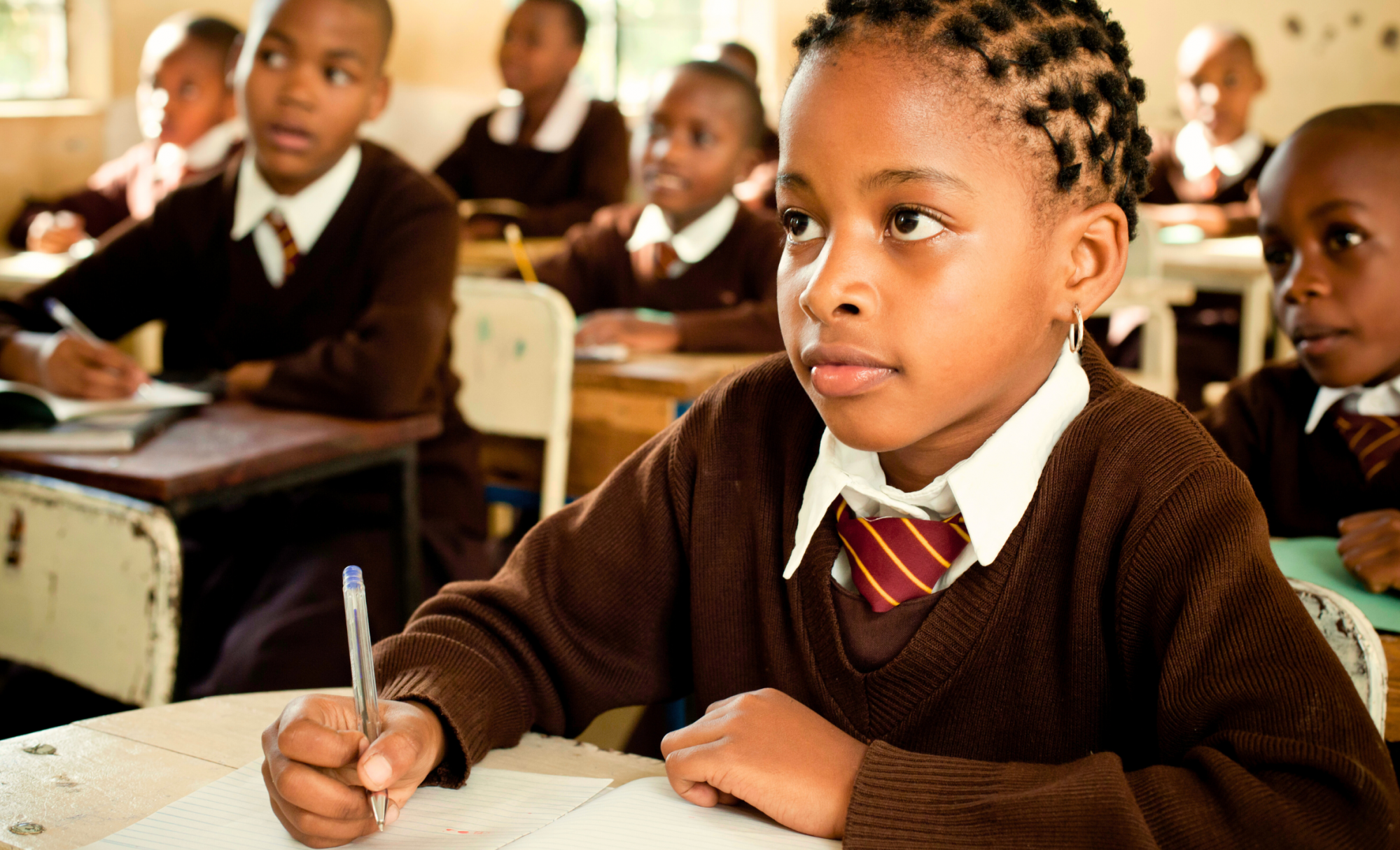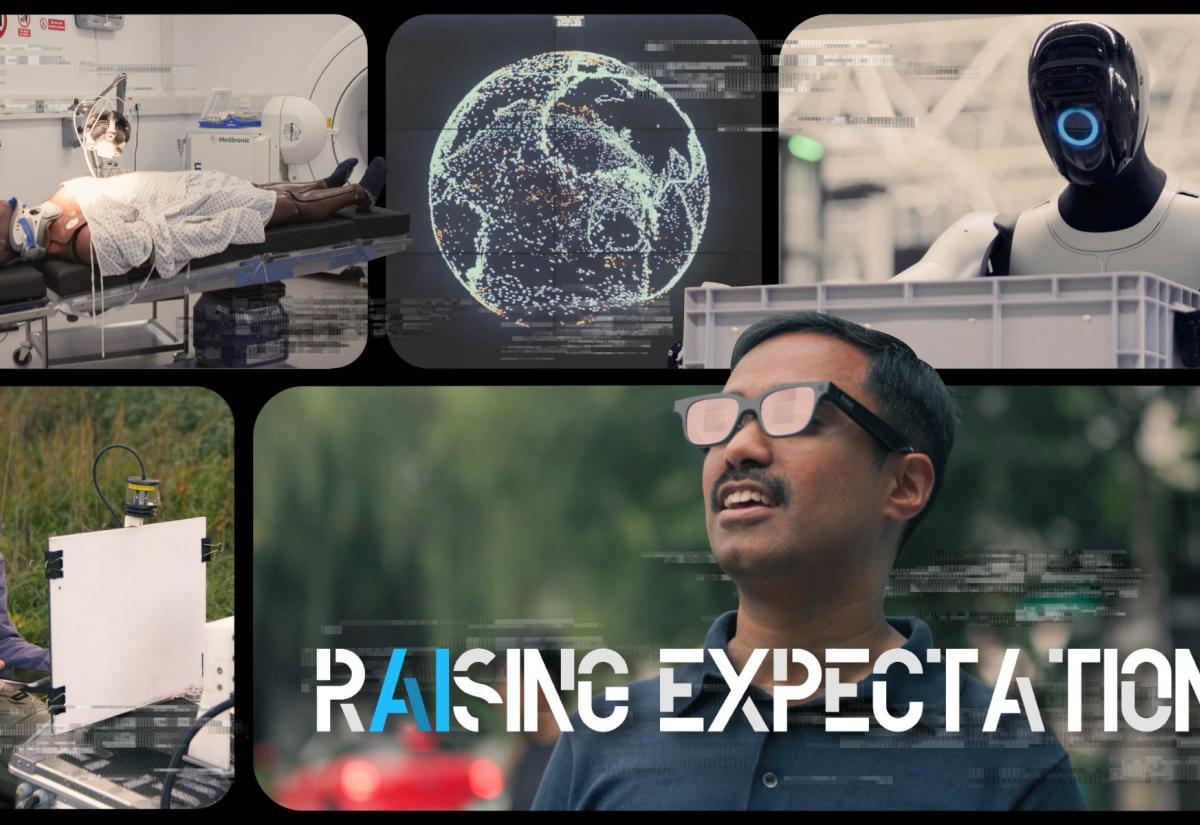
Being in school is not enough
In the first decade of the 21st century, the global education and development community had been focussed on getting all children into school, and having them stay in school for longer. There has been huge global progress in this area.
There has been huge global progress in this area. But, as RISE Research Director Lant Pritchett says, ‘there is schooling – just the process of children being in a physical building called a school – and education – children acquiring the skills, the talents, the capabilities, and the dispositions to be adults in their society. Getting children in school was the first step, but the goals of education, something that has been laid out as a human right since as early as 1948, were not being adequately met.’
One piece of RISE research showed that, as rates of schooling have shot up in the developing world, the effectiveness of education has simultaneously declined, limiting the impact of the success. The likelihood that a woman in the developing world with five years of education can read a simple sentence has declined substantially over the last 40 to 50 years.
Within this trend, though, there are radical differences between countries. Vietnam and Zambia have both had enormous success in increasing the number of girls in education since the 1950s. But in Vietnam, the percentage of women who can read after completing that education has gone up significantly, whereas in Zambia it has gone dramatically down. So while many more girls are completing five years of school in Zambia than before, only a low proportion of those people can actually read as a result. In Vietnam, by contrast, many more girls are in school, and a higher proportion of those in school become literate, meaning a much higher rate of overall literacy for the country. The RISE programme has gone about identifying why these differences between countries exist and how to spread what works.
RISE research also shows that, without improving the rate of learning, there are diminishing returns from keeping children in school for longer. In Indonesia, they found a ‘flattening off’ in how much children were learning in each year as they progressed upwards. Failures to ensure foundational maths and reading skills early on meant that higher-level learning was gated; but neither were the higher years being successfully used to catch up on these foundational skills.
RISE research also proved what some people already suspected: big differences between what the curriculum said children should learn, what was actually being taught in the classroom, and what exams tested, leading to incoherence in achieving (and monitoring) learning goals.
Solutions at scale
RISE studied the relationships between actors in education systems – government, organisations, teachers, principals, parents and students – both to see how changing one element has a knock-on effect on the whole, and to make recommendations for changes that will be effective at scale. One team focused specifically on how to get education reforms adopted, and another on how to get them implemented. The implementation work will be continued by a new £30m programme at the Blavatnik School.
Through synthesising the findings of its hundreds of studies, RISE has produced a list of five actions to accelerate progress in learning (see below), as well as practical tools to allow implementers, advisors, and policymakers to foster systems change. And its collaborative work on the ground in seven countries has directly influenced politicians, policymakers and educators.
RISE has also changed how those countries and organisations who fund development will operate. “The tools and diagnostics that RISE has produced are now being taken up by education advisors from FCDO as they work with partner governments around the world,” said Professor Charlotte Watts of the FCDO.
Five actions to accelerate progress in learning
1. Commit to universal, early foundational learning
If children do not gain foundational literacy and numeracy in the short term, they cannot attain more complex educational goals in the long term.
2. Measure learning reliably, regularly, and relevantly
Education systems collect detailed data on enrolments and inputs, yet many do not use data on student learning to inform policy and improve instruction.
3. Align systems around learning commitments
In many contexts, the curriculum is misaligned with children’s learning levels — such that classroom lessons cater to the most advantaged children. Curriculum, exams, and teacher instruction are often poorly aligned. RISE has identified four principles for Aligning Levels of Instruction with Goals and the Needs of Students (ALIGNS).
4. Support teaching
In many education systems, neither teacher training nor teacher compensation structures support teaching that cultivates student learning. It's crucial to reform teacher careers to attract, retain, and motivate quality teaching.
5. Adapt what you adopt as you implement
When programmes are implemented without enough adaptation or iteration, even a technically well-designed programme may have no impact. Embrace adaptation and iteration as the key to success.
What next?
RISE has used the insights from its vast body of research to generate tools that governments and educationalists can use. Multiple countries and cross-country alliances are using RISE’s applied tools:
Learning trajectories describe and model how much children learn over time. They are a powerful way to simulate the potential impact of different actions and policies on learning.
The RISE Education System Diagnostic supports local actors in selecting high-level strategic reform priorities to improve learning, based on the latest education systems research.
The Surveys of Enacted Curriculum (SEC) approach is used to analyse and report on the academic content embedded in education instructional components such as curriculum standards, assessments, and teachers' classroom instruction.
The education systems course is an open-access, cross-university curriculum for graduate-level students and education professionals interested in education policy, planning, and reform to deliver learning for all.
In addition, new £30m programme at the Blavatnik School will take the growing evidence from RISE and other leading research on what works in education, and focus on how to implement what works, again building on work RISE has begun.



